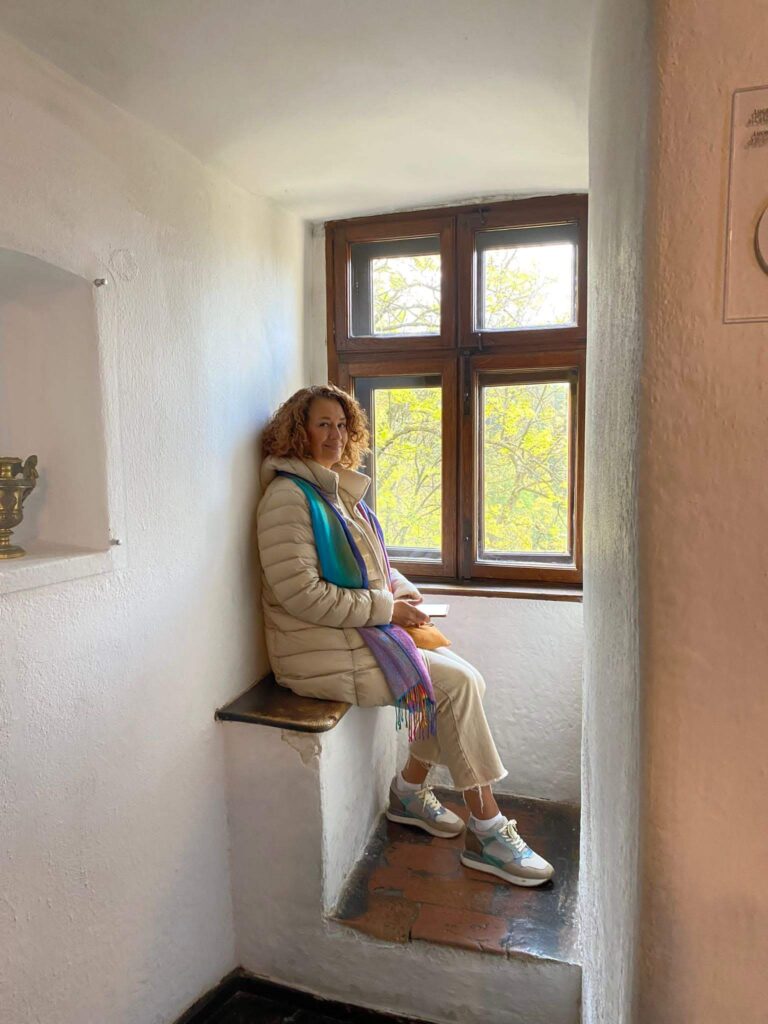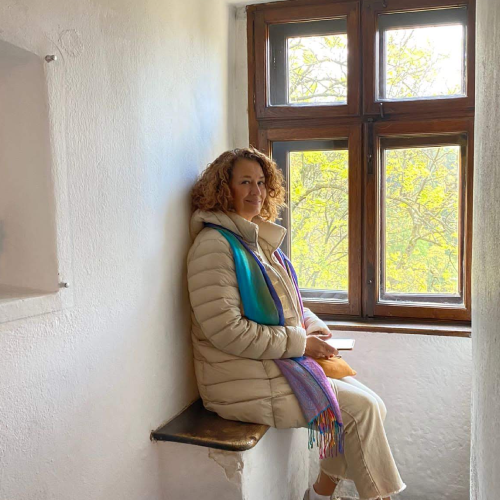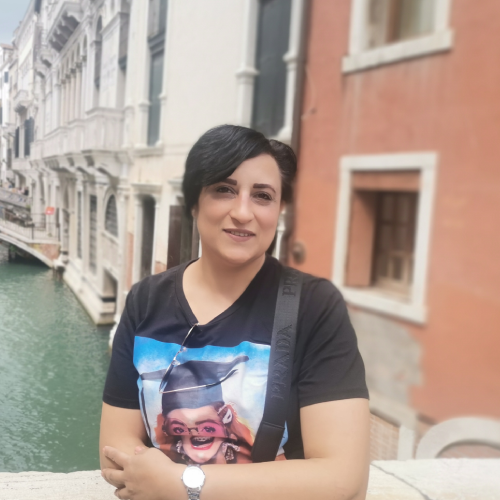


Rut Muñiz
Rut Muñiz is a Senior Lecturer at the Catholic University of Valencia, in Spain. She undertook Basic and Advanced VE training with UNICollaboration five years ago. She is very invested in this pedagogical approach to learning and in particular, intercultural communication.
Dorsaf Ben Malek
Dorsaf Ben Malek is a teacher of English at the Virtual University of Tunis and is also coordinator of English Programmes and courses. Dorsaf is interested in intercultural communication, and has a PhD on intercultural communication in English. She’s a doctor in didactics of disciplines and pedagogy. She undertook Basic and Advanced VE Training with UNICollaboration at the same time as Rut.
The impact of UNICollaboration training on Rut & Dorsaf’s VE journey
Dorsaf says the impact of the VE training she undertook with UNICollaboration five years ago laid the foundation for what she is doing now.
“I met Rut back in 2019 when we did our Basic Training. We both went on to do the Advanced training and have been ‘virtually’ inseparable ever since!
“The concept of virtual exchange as pedagogy was a new one for both myself and Rut. The Basic training introduced us to the concept and the Advanced Training offered us the opportunity to elaborate our ideas. It empowered us with the tools and knowledge to get our own project off the ground,’ she explains, ‘We enjoyed a fantastic one-month long experience where we had the chance to find the right partner! This is halfway to success and is what happened with Rut and me. Like the chemistry between couples, we perfectly complement each other’, they both laugh.
“The importance of finding a VE partner comes from the idea that you have to complete the other. Although you don’t need to be from the same discipline, in our case, we were, and so we found each other and the perfect partnership blossomed. We’re both English teachers, but I know it can work in an interdisciplinary way too.”
Rut nods in agreement. “Our first training gave us the impulse we needed to implement and design our own VE. Our first experience was tiny with only about 10 students. We were very excited but we also had so many doubts about our ability, despite our careful preparation. The whole process coincided with the pandemic, so it was a unique situation. We supported and understood each other really well during this difficult time.”
“Since then, we continue to learn from each other, and understand each other really well. Although our backgrounds are different, we are ‘soul mates’. I feel so touched when Dorsaf says that. We have not met personally but nevertheless, work well virtually and have undertaken many successful collaborative projects together.”
What makes good partner?
“To be flexible, says Rut, ‘to be empathetic, try to understand the other perspective, be supportive, to be eager to learn from each other. That’s the magic formula’, she says.
Dorsaf concurs. “We learn from each other as educators. But virtual exchange was a new concept and as such, each iteration brings new learnings. For example, I am a virtual teacher and had never collaborated internationally ever with anyone. But this VE gave me the strength to overcome the fear. And Rut, as a face-to-face teacher learned some things from me on how to adapt her teaching to a virtual environment. She learned the tools to teach online.”
What VE projects are you involved in now?
Dorsaf says, “We have been building a more interdisciplinary VE now. My students are from an IT background, and Rut’s students are Law students. We now have other countries on board, such as Slovenia whose students come from a business background, so we are growing. But we managed really well.” Rut says they have been mindful to design something valuable for everyone and the interdisciplinary approach ensures everyone benefits from intercultural communication.
Dorsaf is currently involved in a project that aims to use VE as an alternative to a physical mobility. “We are realising how we can adapt VE as part of an internationalisation @ home strategy”, she explains.
She is very excited about being involved in Coweb, an international Erasmus Plus capacity building project with the Western Balkans region. The general goals of the project are:
The general objective of COWEB (Promoting and Facilitating Collaborative Virtual International Learning in the Western Balkans Higher Education Institutions) is to build capacities in the Western Balkans Higher Education Institutions for international virtual collaboration as an innovative pedagogy in teaching and learning, with a focus on co-creating virtual/blended learning spaces and course content that will boost 21st century skills and competencies and address the low cross-border collaboration among young students in the Western Balkans region.
The virtual exchange activities planned in the framework of this project will further improve the digital culture among academic staff and students of the region. The outcomes of COWEB will have a significant and long-term impact on the targeted HEIs beyond the projects’ lifetime and as such benefit the society in general.
The consortium includes: Slovenia, Germany, Italy and Albania as the Lead. Dorsaf says, “The most important thing to know is that we are helping them to develop their local international collaborative learning programmes, which is somehow an evolution of our understanding of VE. By giving the right context we can help them prepare for their careers, using real-life situations/simulations. And we can empower E-tutors through training so they can go on and do their own international collaborative learning programmes.”
Future VE plans
Rut says that starting with their VE has led them to a situation with herself, Dorsaf and Laura working as a team.
“We have applied for funding for a larger project that includes other partners; significantly from Ukraine and Algeria. We are hoping for a positive answer to our application so we can deepen our partnership.
“And it all happened thanks to our training with UNICollaboration.” Rut says she is optimistic that they will receive the funding. Even if they don’t, they will continue anyway as they think VE is the way forward.
Dorsaf also thanks UNICollaboration for giving her Rut as they have become great friends as well as VE partners. “We will meet soon”, they both agree
